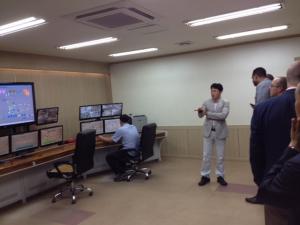In September, the U.S. Grains Council, Renewable Fuels Association (RFA) and Growth Energy conducted the first of three initial missions to explore the possibilities for U.S. ethanol exports overseas. The missions will travel to different markets to meet with energy sector leaders and learn about local biofuel and energy needs.
While abroad, the team will explore areas of common interest and the specific biofuel requirements in each region. The team also hopes to demonstrate to contacts the growing affordability of ethanol and its potential as a clean fuel alternative to gasoline.
Meeting with Leaders in Japan and Korea
On the recent mission to Japan and Korea, the U.S. representatives spent time learning about these two countries’ individual ethanol needs through meetings with government officials, policy groups, energy researchers and trading companies. The team was also given the opportunity to tour a Korean ethanol plant and research facility.
“We now have a clearer understanding of the current supply and demand for biofuels in Japan and Korea,” said Eric Mosbey, Lincolnland Agri-Energy, LLC general manager, who participated in the mission.
“These meetings opened a dialogue with key buyers and end-users about U.S. ethanol as a clean, renewable fuel source. This mission is the foundation for future conversations.”
Ethanol a New Frontier for USGC and Others
The missions were made possible earlier this year when the United States Department of Agriculture (USDA) announced that ethanol exports could be promoted under the Market Access Program (MAP). This program, part of the U.S. farm bill, provides cooperative funding for U.S. agricultural export promotion initiatives around the world. The Council is one of more than 60 groups working to develop markets for U.S. products through the MAP program.
After a positive start in Japan and Korea, the team is looking forward to future missions to Latin America and Southeast Asia. The aim is identify opportunities in the ethanol markets in those countries and to begin to build strong relationships that will help the United States understand how to best serve the particular needs of different markets around the world.

